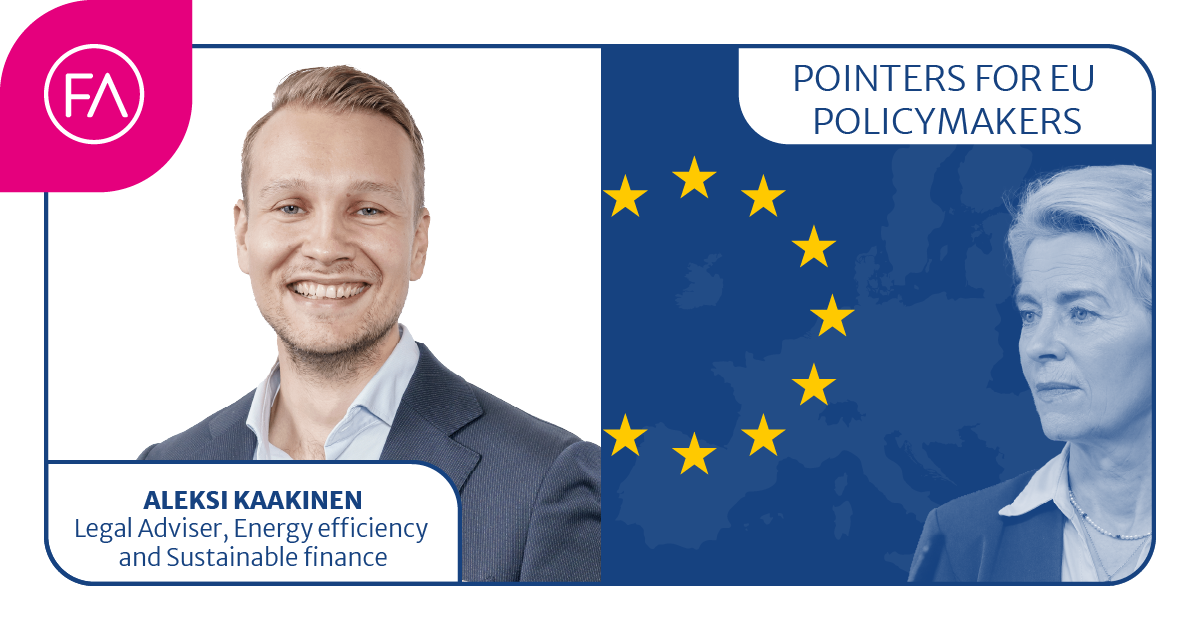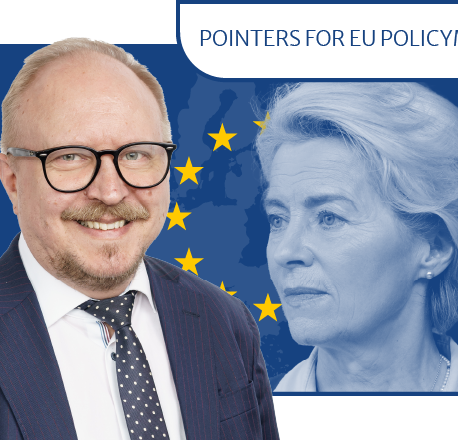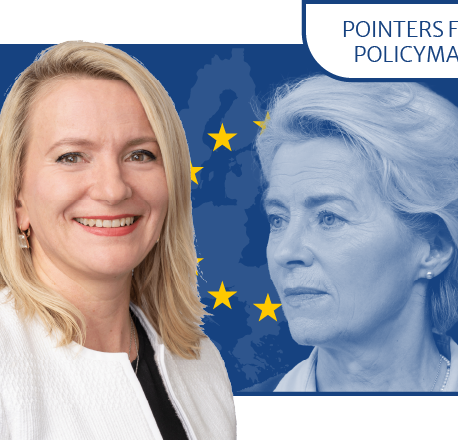
Watching the news over the past few years has been increasingly unsettling. A European country that shares almost the same longitude as Finland is fighting off a brutal invasion, millions of civilians are suffering and the undersea communications cables that link Europe to global data streams seem to be sustaining damage repeatedly. The European Union, originally built upon peace and unity, is now faced with the reality of war in a way that many Union members were not prepared for.
Growing geopolitical uncertainty has had a significant impact on European security policy and political dynamics. Quite understandably, the public pressure to increase Europe’s military defence capacity, national defence budgets and procurement of military materiel has been growing, and new ways of pumping additional financing quickly into the EU defence industry have been feverishly explored.
======
Including the defence industry in the EU sustainable finance taxonomy has been proposed as one possible solution to ensuring better access to financing.
======
Including the defence industry in the scope of the EU taxonomy for sustainable finance would be one way to ensure that the sector has uncomplicated access to additional financing with which to develop its operations. The push to do so is understandable – after all, it is only natural to grasp at straws in a crisis. But in the pursuit of a quick fix, many seem to have lost sight of the taxonomy’s purpose.
The fundamental aim of the EU taxonomy is to steer investment into environmentally sustainable activities, the emphasis being on environmental consideration. In order for the defence industry to comply with the taxonomy, it would have to involve activities that substantially promote environmental goals without causing significant harm to the other objectives of the taxonomy.
It can be argued that the defence industry promotes European resilience, in which case it would easily fit under the taxonomy for socially sustainable activities, which is a framework independent from the environmental taxonomy. Unfortunately even this will not provide fast relief because the precise groundwork for the EU social taxonomy has not been laid down yet.
Furthermore, the point of the EU taxonomy is not to prevent or serve as a reverse incentive for anything but instead to point the right direction for environmentally sustainable investment. Calling down the taxonomy as a solution to defence financing diverts attention from the fact that no regulation currently imposes any limitation on the financing of the sector in the first place. Although it is possible to facilitate the industry’s access to financing with political decisions, the defence industry and the financial sector would both benefit more from a high-level political address that promotes the defence industry and military preparedness – as well as from concrete measures.
======
Without a sufficiently established order book, the defence industry cannot benefit from additional financing.
======
To get the ball rolling on defence financing, the Commission and member states’ governments should commit to increasing the defence capacity of EU states in the long term. Without a sufficiently established order book, the defence industry cannot benefit from additional financing – and who else to fill the order book if not sovereign states with their long-term orders? What seems to be forgotten in public debate is that the financing decisions of investors – whether capital investors or banks – always involve risks.
The European defence industry consists of several small and medium enterprises which receive initial financing from capital investors and then from banks. But if the next link in the chain is missing and there is no prospective buyer state, investors will not have the necessary conditions for investment, no matter how important it would be. If we want to increase the financing of the defence industry, the European Union and its institutions and member states must set an example by investing in procurement and making long-term commitments with the European defence and security industry. Due to its reputation, the defence industry is also in need of broad political endorsement. The majority of Finns understand the importance of military defence, but this is not the case in many parts of the EU.
======
Investors will be faced with moral friction and ambiguity if investment in the defence industry is massively increased.
======
Another ingredient in the mix are the internal ESG investment policies of financial sector participants, which may be contradictory to the defence industry’s business logic. ESG policies refer to companies’ internal guidelines on environmental and social responsibility and ethical governance. With the policies, financial sector companies also seek to meet the growing expectations of their customers.
What would be the investment risk of a well-intentioned weapons shipment ending up in the wrong hands – not to speak of the risk of a humanitarian disaster in conflict areas? If investment in the defence industry is massively boosted, investors will be forced to deal with more and more ambiguity and moral friction.
Financing the defence industry is a highly complex issue. In the space of a single column, I can only hope to provoke thoughts and inspire discussion rather than offer carefully considered and directly applicable solutions. Nevertheless, what the issue boils down to is that all development hinges on political determination. Clearly stated political will must be the foundation on which we build a stronger European defence industry and financing that enables its future.
Still have questions?
|Contact the columnist
Looking for more?
Other articles on the topic

Finance Finland’s CEO Ahosniemi: The Commission makes grand declarations for better regulation but fails to back them up with concrete measures in its work programme

The EU needs to build a more favourable investment climate

European Commission is taking action to simplify regulation – is Finland lagging behind?

The Commission must tighten the screw on fraud prevention – Social media platforms and online marketplaces must also be involved




